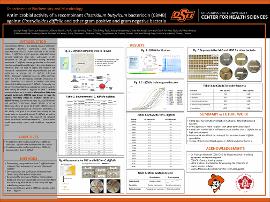| dc.contributor.author | Rivet-Tissot, Jessalyn | |
| dc.contributor.author | McCreary, Joe | |
| dc.contributor.author | Moulis, Gianna | |
| dc.contributor.author | Lee, Ya-Ru | |
| dc.contributor.author | Tsai, Bo-Yang | |
| dc.contributor.author | Tsai, Chin-Shiang | |
| dc.contributor.author | Chang, Hsiang-Ning | |
| dc.contributor.author | Hung, Yuan-Pin | |
| dc.contributor.author | Chen, Jenn-Wei | |
| dc.contributor.author | Tsai, Pei-Jane | |
| dc.contributor.author | Huang, I-Hsiu | |
| dc.date.accessioned | 2023-11-02T20:46:50Z | |
| dc.date.available | 2023-11-02T20:46:50Z | |
| dc.date.issued | 2023-02-17 | |
| dc.identifier | ouhd_Rivet-Tissot_antimicrobialactivityofarecombinant_2023 | |
| dc.identifier.citation | Rivet-Tissot, J., McCreary, J., Moulis, G., Lee, Y-R., Tsai, B-Y., Tsai, C-S., Chang, H-N., Hung, Y-P., Chen, J-W., Tsai, P-J., and Huang, I-H. (2023, February 17). Antimicrobial activity of a recombinant Clostridium butyricum bacteriocin (CBMB) against Clostridioides difficile and other gram positive and gram negative bacteria. Poster presented at Research Week, Oklahoma State University Center for Health Sciences, Tulsa, Ok. | |
| dc.identifier.uri | https://hdl.handle.net/11244/339929 | |
| dc.description.abstract | Clostridioides difficile is the leading cause of antibiotic-associated diarrhea worldwide and infects approximately 200,000 people annually in the United States. C. difficile is a gram positive, anaerobic, spore forming bacterium that takes advantage of the disruption of the gut microflora during antibiotic treatment. C. difficile spores germinates in the small intestine and rapidly proliferate in the colon leading to infections that can lead to sepsis and death if left untreated. Vancomycin and metronidazole are the antibiotics of choice for C. difficile infections (CDIs). However, relapsing cases are often common while the risk of developing antibiotic resistance is high. Therefore, it is critical to develop alternative treatment strategies against C. difficile. Previously, our lab screened multiple non-pathogenic commensals for their ability to inhibit C. difficile in vitro. Currently commercialized as a probiotic, Clostridium butyricum Mayairi bacteriocin (CBMB) was shown to have the highest inhibitory effect on multiple strains of C. difficile in vitro. Currently we have successfully cloned and purified recombinant CBMB. Results from our laboratory show an equal to greater effectiveness of the bacteriocin compared to the current antibiotics. In this study, our goal is to assess the activity of the bacteriocin on several strains of C. difficile as well as other similar bacterium. The goal of the research would be to find a novel treatment for CDIs that would avoid reoccurring cases and antibiotic resistance risks. | |
| dc.format | application/pdf | |
| dc.language | en_US | |
| dc.publisher | Oklahoma State University Center for Health Sciences | |
| dc.rights | The author(s) retain the copyright or have the right to deposit the item giving the Oklahoma State University Library a limited, non-exclusive right to share this material in its institutional repository. Contact Digital Resources and Discovery Services at lib-dls@okstate.edu or 405-744-9161 for the permission policy on the use, reproduction or distribution of this material. | |
| dc.title | Antimicrobial activity of a recombinant clostridium butyricum bacteriocin (CBMB) against clostridioides difficile and other gram positive and gram negative bacteria | |
| osu.filename | ouhd_Rivet-Tissot_antimicrobialactivityofarecombinant_2023.pdf | |
| dc.type.genre | Presentation | |
| dc.type.material | Text | |
| dc.subject.keywords | clostridium | |
| dc.subject.keywords | bacteriocin | |
| dc.subject.keywords | protein | |
| dc.subject.keywords | inhibition | |
